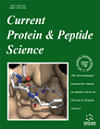-
s Light Harvesting Proteins for Solar Fuel Generation in Bioengineered Photoelectrochemical Cells
- Source: Current Protein and Peptide Science, Volume 15, Issue 4, Jun 2014, p. 374 - 384
-
- 01 Jun 2014
Abstract
The sun is the primary energy source of our planet and potentially can supply all societies with more than just their basic energy needs. Demand of electric energy can be satisfied with photovoltaics, however the global demand for fuels is even higher. The direct way to produce the solar fuel hydrogen is by water splitting in photoelectrochemical (PEC) cells, an artificial mimic of photosynthesis. There is currently strong resurging interest for solar fuels produced by PEC cells, but some fundamental technological problems need to be solved to make PEC water splitting an economic, competitive alternative. One of the problems is to provide a low cost, high performing water oxidizing and oxygen evolving photoanode in an environmentally benign setting. Hematite, α-Fe2O3, satisfies many requirements for a good PEC photoanode, but its efficiency is insufficient in its pristine form. A promising strategy for enhancing photocurrent density takes advantage of photosynthetic proteins. In this paper we give an overview of how electrode surfaces in general and hematite photoanodes in particular can be functionalized with light harvesting proteins. Specifically, we demonstrate how low-cost biomaterials such as cyanobacterial phycocyanin and enzymatically produced melanin increase the overall performance of virtually no-cost metal oxide photoanodes in a PEC system. The implementation of biomaterials changes the overall nature of the photoanode assembly in a way that aggressive alkaline electrolytes such as concentrated KOH are not required anymore. Rather, a more environmentally benign and pH neutral electrolyte can be used.


